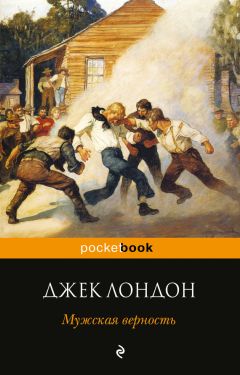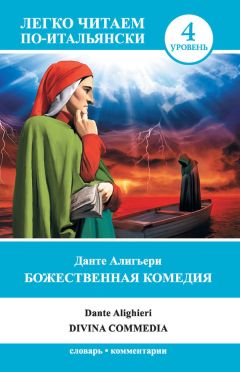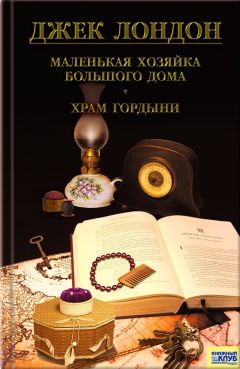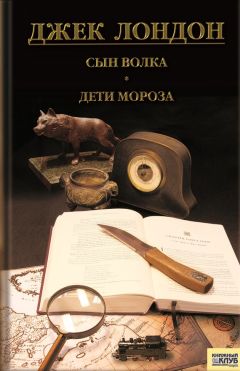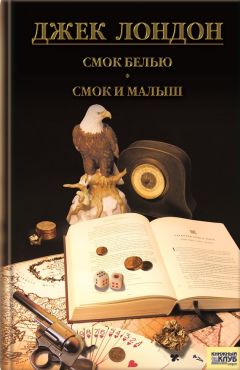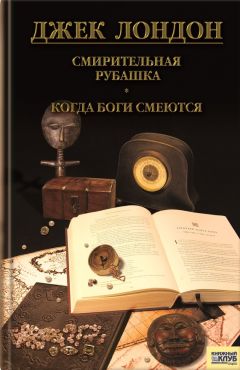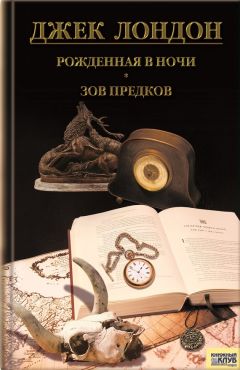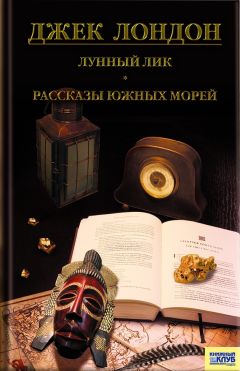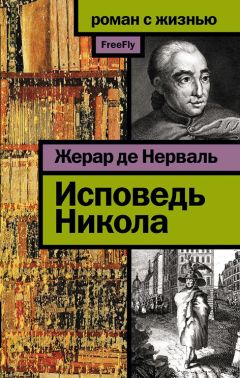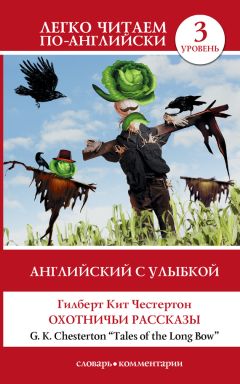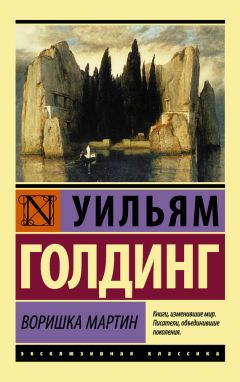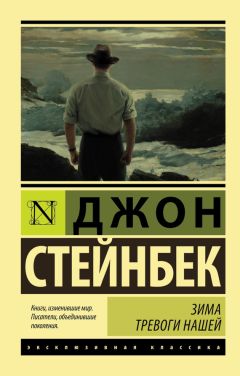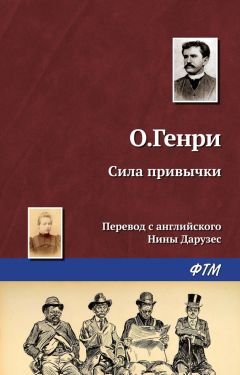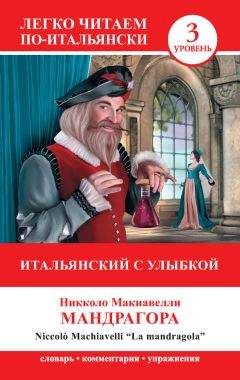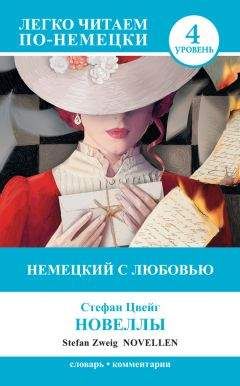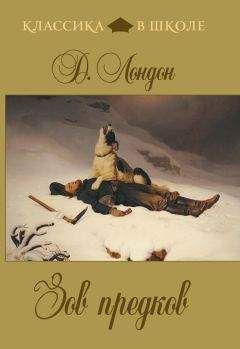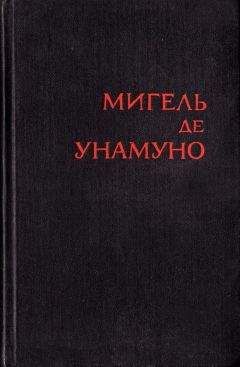Джек Лондон - Мартин Иден / Martin Eden
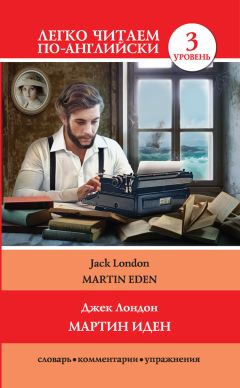
Все авторские права соблюдены. Напишите нам, если Вы не согласны.
Описание книги "Мартин Иден / Martin Eden"
Описание и краткое содержание "Мартин Иден / Martin Eden" читать бесплатно онлайн.
Роман «Мартин Иден» – одно из самых знаменитых произведений Джека Лондона.
Главный герой Мартин Иден, крепкий и душевный парень из простой семьи, бывший моряк, влюбляется в Рут, девушку из состоятельной семьи. Сила любви творит чудеса: Мартин меняется как личность, занимается самообразованием, растет духовно. Он становится настоящим писателем, но когда к нему приходит невероятный успех, теряет вкус к жизни.
Текст произведения подготовлен для уровня 3 Intermediate (т. е. для продолжающих учить английский язык средней ступени) и снабжен комментариями.
В конце книги дается англо-русский словарь.
“Do you know,” he added, “I feel sorry for Mr. Butler. He was too young to know better, but he robbed himself of life for the sake of thirty thousand a year. Thirty thousand, a great sum, can’t buy for him right now what ten cents could when he was a kid.”
Such points of view were new to Ruth, and contrary to her own beliefs. But she was twenty-four, conservative by nature, and already crystallized into the cranny of life where she had been born and formed. It was true, his bizarre judgments troubled her, but she ascribed them to his novelty of type and strangeness of living, and they were soon forgotten. Nevertheless, Marin’s strength, and the flashing of eyes and earnestness of face thrilled her and drew her toward him.
“But I have not finished my story,” she said. “He worked, so father says, as no other office boy he ever had. Mr. Butler was always eager to work. He never was late, and he was usually at the office a few minutes before his regular time. And yet he saved his time. Every spare moment was devoted to study. He quickly became a clerk, and he made himself invaluable. Father appreciated him, and he went to law college. He became a lawyer. He is a great man.”
“Yes, he is a great man,” Martin said sincerely.
But it seemed to him that thirty thousand a year was all right, but dyspepsia and inability to be humanly happy robbed the value of this great income.
Chapter 9
Martin Eden’s store of money exhausted, and he went to the sea. He has worked as a sailor for eight months. He earned enough money to stay on land for many weeks, and he did a great deal of studying and reading.[50]
He mastered the grammar and noticed the bad grammar used by his shipmates. He took the dictionary and started to add twenty words a day to his vocabulary. He found that this was not an easy task. He repeated new words in order to accustom his tongue to the language spoken by Ruth.
The captain possessed of a complete Shakespeare, which he never read, and Martin had washed his clothes for him and received the permission to read the precious volumes.
He was touched by the exquisite beauty of the world, and wished that Ruth were there to share it with him. He decided that he would describe to her the South Sea beauty. But soon he understood that he would describe the beauty of the ocean for a wider audience than Ruth. And then came the great idea. He will write! He will write – everything – poetry and prose, fiction and description, and plays like Shakespeare. It is the way to win Ruth. The men of literature were the world’s giants, greater than Mr. Butlers.
To write! This thought was fire in him.
So he entered his old room at Bernard Higginbotham’s and set to work. He did not tell Ruth that he was back. He did not know how long an article he would write, but he counted the words in a article in the SAN FRANCISCO EXAMINER.[51] His writing lasted for three days. Also, he learned that first-class papers paid a minimum of ten dollars a column. So one hundred dollars! and he decided that that was better than seafaring.[52]
He mailed the manuscript in a big envelope, and addressed it to the editor of the SAN FRANCISCO EXAMINER. He had an idea that everything sent to a newspaper was published immediately. Then he decided to write an adventure story for boys and sell it to THE YOUTH’S COMPANION.[53]
He wanted to write about the things he knew. It was easy work, he decided on Saturday evening. He had completed on that day the first instalment of three thousand words.
* * *After breakfast he went on with his story. He often read or re-read a chapter. This was his programme for a week. Each day he did three thousand words, and each evening he studies stories, articles, and poems that editors saw fit to publish.[54] One thing was certain: What these writers did he could do, and only give him time and he would do what they could not do. He was glad to read in BOOK NEWS[55] that Rudyard Kipling[56] received a dollar per word, and that the minimum rate paid by first-class magazines was two cents a word. THE YOUTH’S COMPANION was certainly first class, and at that rate the three thousand words he had written that day would bring him sixty dollars – two months’ wages on the sea![57]
On Friday night he finished the story, twenty-one thousand words long. At two cents a word, he calculated, that would bring him four hundred and twenty dollars. Not a bad week’s work. It was more money than he had ever possessed at one time.[58] He did not know how he could spend it all. He planned to buy some more clothes, to subscribe to many magazines, and to buy many useful books. And still there was a large portion of the four hundred and twenty dollars unspent. Finally, he decided to hire a servant for Gertrude and to buy a bicycle for Marion.[59]
He mailed the big manuscript to THE YOUTH’S COMPANION, and on Saturday afternoon he went to see Ruth. He had telephoned, and she went herself to greet him at the door. He flushed warmly as he took her hand and looked into her blue eyes. She noted his clothes. They really fitted him, – it was his first made-to-order suit.[60] Ruth did not remember when she had felt so happy. This change in him was her handiwork, and she was proud of it.
But the most radical change of all, and the one that pleased her most, was the change in his speech. Not only did he speak more correctly, but he spoke more easily, and there were many new words in his vocabulary. He displayed a lightness and facetiousness of thought that delighted her.
He told her of what he had been doing, and of his plan to write for a livelihood and to go on with his studies. But she did not think much of his plan.
“You see,” she said frankly, “writing must be a trade, like anything else. You can’t become a blacksmith without spending three – or five! – years at learning the trade.”
“What would you advise?” he asked. “And don’t forget that I feel in me this capacity to write – I can’t explain it; I just know that it is in me.”
“You must get a good education,” was the answer, “You must go to high school.”
“Yes – ” he began; but she interrupted:
“Of course, you can go on with your writing, too.”
“I will,” he said grimly.
“Why?” She looked at him, prettily puzzled.
“Because I must live and buy books and clothes, you know.”
“I forgot that,” she laughed. “Why weren’t you born with an income?”
“I’d rather have good health and imagination,” he answered.
* * *Then she played and sang to him, while he gazed with hungry yearning at her.
Chapter 10
He stopped to dinner that evening, and, much to Ruth’s satisfaction, made a favorable impression on her father. They talked about the sea as a career, and Mr. Morse remarked afterward that he seemed a very clear-headed[61] young man. Martin talked slowly, which enabled him to find the best thoughts that were in him. His shyness and modesty even commended him to Mrs. Morse.
“He is the first man that ever drew notice from Ruth,” she told her husband.
Mr. Morse looked at his wife curiously.
“You mean to use this young sailor to wake her up?” he questioned.
“I mean that she is not to die an old maid if I can help it,” was the answer. “If this young Eden can arouse her interest in mankind in general, it will be a good thing.”
“A very good thing,” he commented. “But suppose, – and we must suppose, sometimes, my dear, – suppose he arouses her interest too particularly in him?”
“Impossible,” Mrs. Morse laughed. “She is three years older than he, and, besides, it is impossible. Trust that to me.[62]”
Sunday Martin had intended to devote to studying for the high school examination. But some days after he learned that he had failed in everything save grammar.[63]
“Your grammar is excellent,” Professor Hilton[64] informed him, staring at him through heavy spectacles; “but you know nothing, positively nothing, in the other branches, and your United States history is abominable – there is no other word for it, abominable.”
“Yes, sir,” Martin said humbly.
“And I can advise you to go back to the grammar school for at least two years. Good day.”
“You see I was right,” said Ruth. “It is because you need the discipline of study. Professor Hilton is right, and if I were you, I’d go to night school.”
But if my days are taken up with work and my nights with school, when am I going to see you? – was Martin’s first thought. He said:
“It seems so babyish for me to go to night school. I can do the work quicker than they can teach me. It will be a loss of time – ” he thought of her – “and I can’t afford the time. I have no time to spare, in fact.”
She looked at him gently. “Physics and chemistry – you can’t do them without laboratory study; and you’ll find algebra and geometry almost hopeless with instruction. You need the skilled teachers, the specialists.”
Chapter 11
Martin went back to his pearl-diving article.[65] After that he wrote an article on the sea as a career, and another on turtle-catching.[66] Then he tried, as an experiment, a short story, and he had finished six short stories and sent them to various magazines. He wrote, intensely, from morning till night, and late at night, except when he went to the reading-room, draw books from the library, or saw Ruth. He was profoundly happy. The joy of creation was his. All the life about him – the odors of stale vegetables and soapsuds, his sad sister, and the jeering face of Mr. Higginbotham – was a dream. The real world was in his mind, and the stories he wrote were reality.
The days were too short. There was so much he wanted to study. He cut his sleep down[67] to five hours.
In the meantime the weeks were passing, his money was coming out, and there was no money coming in. A month after the adventure story for boys was returned to him by THE YOUTH’S COMPANION. The SAN FRANCISCO EXAMINER did the same: at the end of the fifth week the manuscript came back to him, by mail, without comment. In the same way his other articles came back from the other leading San Francisco papers. When he recovered them, he sent them to the magazines in the East, from which they were returned more promptly.
The short stories were returned in similar fashion. He read them over and over, and liked them so much that he could not understand the cause of their rejection. He decided to read some stories to his sister.
“That story was perfectly grand,” she announced; “but it makes me sad. I want to cry. There is too many sad things in the world anyway. It makes me happy to think about happy things. Where are you going to sell it?”
“Hm, that’s not so easy,” he laughed.
“But if you DID sell it, what do you think you’d get for it?”
“A hundred dollars.”
“Oh! I do hope you’ll sell it!”
“Easy money, eh?” Then he added proudly: “I wrote it in two days. That’s fifty dollars a day. But nobody wants to publish them.”
He wanted to read his stories to Ruth, but did not dare.
Chapter 12
It was the circle of socialists and working-class philosophers that gathered in the City Hall Park[68] on warm afternoons that was responsible for the great discovery. Once or twice in the month, Martin listened to the arguments. The tone of discussion was much lower than at Mr. Morse’s table. The men were not grave and dignified. They lost their tempers easily.[69]
They spoke about Herbert Spencer[70] in the park. So the great discovery began. Martin tried to read Spencer, and chose the “Principles of Psychology” to begin with. But he did not understand the book, and he returned it unread.
Martin Eden was very curious, and he wanted to know. This desire had sent him to travel around the world. He tried to read Spencer again. But his ignorant and unprepared attempts at philosophy had been fruitless. The medieval metaphysics of Kant[71] had given him the key to nothing. And here was the man Spencer, organizing all knowledge for him, reducing everything to unity, elaborating ultimate realities, and presenting to him a concrete universe. There was no caprice, no chance. All was law.
What most profoundly impressed Martin, was the correlation of knowledge – of all knowledge. He had been curious to know things. All things were related to all other things from the star in space to the myriads of atoms in the grain of sand[72] under one’s foot. This new concept was a perpetual amazement to Martin.
One day, because the days were so short, he decided to give up algebra, geometry, and trigonometry. Then he cut chemistry from his study-list, retaining only physics.
“I am not a specialist,” he said to Ruth. “Nor am I going to try to be a specialist. There are too many special fields for any one man, in a whole lifetime, to master them. I must pursue general knowledge. When I need the work of specialists, I shall refer to their books. It is unnecessary to have this knowledge.”
“Give me time,” he said aloud. “Only give me time.”
Time! Time! Time! was his unending plaint.
Chapter 13
No time to lose. His money meant time. He must write. He must earn money. But the newspapers and magazines refuse to publish his stories. Piles of manuscripts were travelling the endless round of the magazines. How did the others do it? He spent long hours in the library, reading what others had written, studying their work eagerly and critically, comparing it with his own, and wondering, wondering, about the secret trick they had discovered which enabled them to sell their work.
No light, no life, no color, was in other writers’ stories. There was no breath of life in their work, and yet it sold,[73] at two cents a word, twenty dollars a thousand. How did they do it?!
His chief trouble was that he did not know any editors or writers. He did not know anybody who had ever attempted to write. There was nobody to tell him, to hint to him, to give him the least word of advice. He began to doubt that editors were real men. They seemed cogs in a machine.
“How well you talk,” one day Ruth said to him, and he noted that she was looking at him strangely.
He was all confusion and embarrassment, the blood flushing red on his neck and brow.
“I want to learn to talk,” he answered. “There is so much in me I want to say. I can’t find ways to say what is really in me. But how can I? My tongue is tied. I try, but I do not succeed. My speech is very awkward. Oh! – ” he threw up his hands with a despairing gesture – “it is impossible! It is incommunicable!”
“But you do talk well,” Ruth noticed. “Just think how you have improved in the short time I have known you. You can go far – if you want to. You have power. You can lead men, I am sure. You can become a good lawyer. You can shine in politics.”
He read to her a story, one that was among his very best. He called it “The Wine of Life”. There was a certain magic in the original conception, and he had adorned it with more magic of phrase and touch. He was blind and deaf to the faults of it. But it was not so with Ruth. Her trained ear detected the weaknesses and exaggerations. She was disagreeably impressed with its amateurishness.[74] That was her final judgment on the story as a whole – amateurish, though she did not tell him so. Instead, when he had done, she pointed out the minor flaws and said that she liked the story.
Подписывайтесь на наши страницы в социальных сетях.
Будьте в курсе последних книжных новинок, комментируйте, обсуждайте. Мы ждём Вас!
Похожие книги на "Мартин Иден / Martin Eden"
Книги похожие на "Мартин Иден / Martin Eden" читать онлайн или скачать бесплатно полные версии.
Мы рекомендуем Вам зарегистрироваться либо войти на сайт под своим именем.
Отзывы о "Джек Лондон - Мартин Иден / Martin Eden"
Отзывы читателей о книге "Мартин Иден / Martin Eden", комментарии и мнения людей о произведении.










